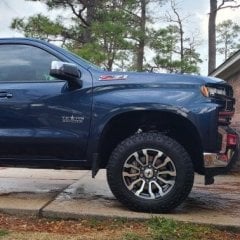- 0
1990 silverado 2500 6.0l overheating problem help!
-
Similar Content
-
- 0 replies
- 145 views
-
- 3 replies
- 390 views
-
- 6 replies
- 398 views
-
- 7 replies
- 851 views
-
- 2 replies
- 685 views
-
-
Recently Browsing 0 members
- No registered users viewing this page.
-
Forum Statistics
246k
Total Topics2.6m
Total Posts -
Member Statistics
-
Who's Online 16 Members, 0 Anonymous, 1,644 Guests (See full list)














Question
huntyr
So I am dumb and I mixed regular green coolant with my dexcool and didn't know gm did Dex cool, so there was a little muk from it and I did a flush and it cleaned and everything was good, few days after my truck started to over heat, I didn't let it get too hot and got a tow home, I did a new thermostate and that didn't do it my coolant is going up and down bad and then going over the reservoir cap while burbing it, and then overheats,told it was reservoir cap, so replaced that. then found water pump wasn't pumping water so replaced that, and coolant still doing the up and down and over heating, my one friend said air pocket mayeb but I keep getting cracked heads or gasket but no oil in coolant and takes a good while for it to get hot. I am very stumped and also go told maybe my radiator but not going to replace that till I know for sure. =/
Link to comment
Share on other sites
13 answers to this question
Recommended Posts
Archived
This topic is now archived and is closed to further replies.